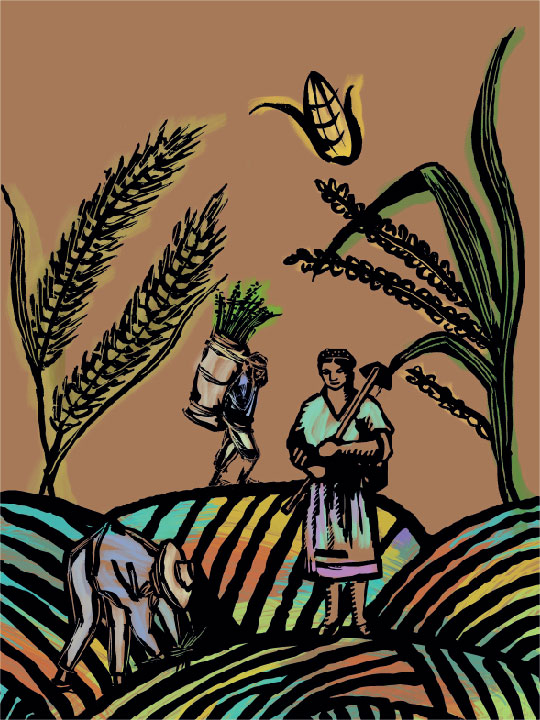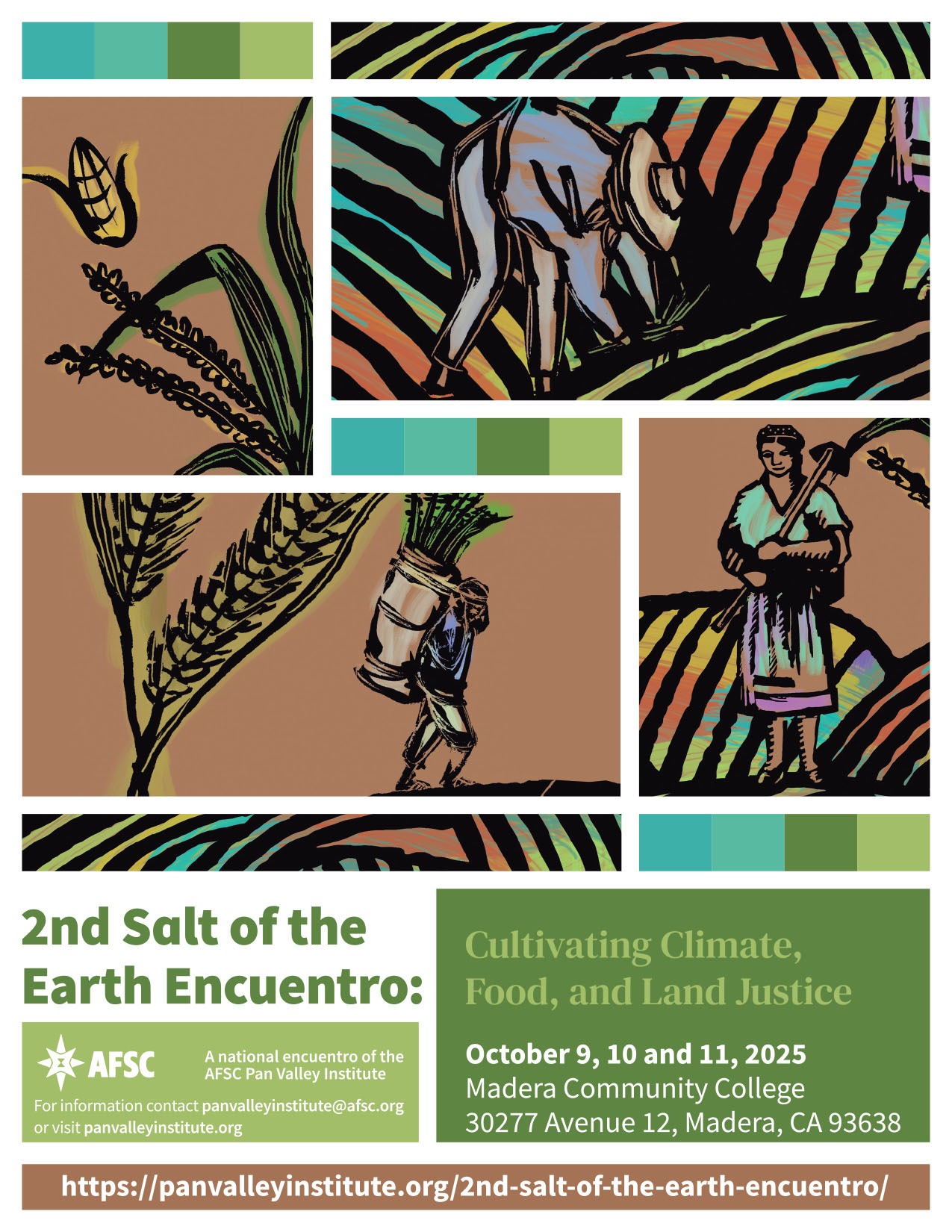
AFSC-PVI Artwork
Salt of the Earth
Cultivating Climate, Food, and Land Justice National Encuentro
Thursday, October 9 to Saturday October 11, 2025
Fresno, Madera, Merced
ENCUENTRO SPONSORS


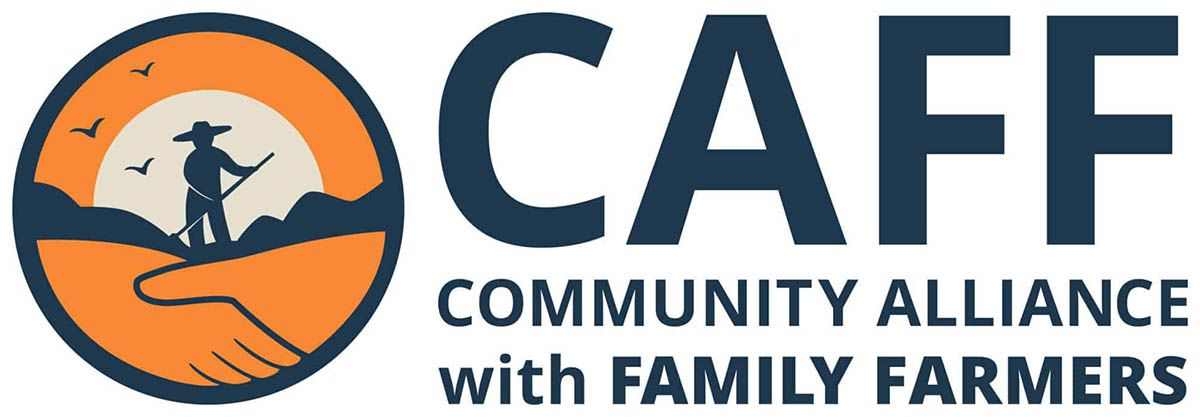

![FTHF_Final_Logos-05[60] FTHF logo](https://panvalleyinstitute.org/wp-content/uploads/2025/08/FTHF_Final_Logos-0560.jpeg)






PROGRAM
(this program will be updated weekly)
THURSDAY, October 9, 2025
4:00 – 6:00 pm
Madera Arts Council
424 N. Gateway Drive, Madera, CA
Cultural Crossroads: Where Food Meets History. A multimedia exhibit exploring the roots, flavors, and stories that connect us.
Curated by Tony Carranza with Myrna Martinez N. Photography by Eduardo Stanley, Tudor Stanley, Alicia April Adams.
This multimedia exhibit will kick off a year-long campaign to raise awareness of the Central Valley’s economic inequalities and environmental issues. Its goal is to shift the narrative that farmwork is unskilled labor and highlight the essential contributions of immigrants, refugees, and communities of color to the region’s food systems, agricultural wealth, economic growth, and vibrant food culture.
It also challenges narratives that depict industrial agriculture as the sole driver of productivity in the Central Valley. By emphasizing indigenous farming techniques, cultural food practices, and immigrant entrepreneurship, we highlight alternative food production methods that often prioritize sustainability and community well-being over maximizing profits.
FRIDAY, October 10, 2025
8:00 am – 2:00 pm
Round Table on Wheels: Getting to Know California’s Central Valley
Coordinated by May Lee & Gepao Lor with Estela Galvan.
In Merced, many Southeast Asian farmers, especially Hmong families, grow rice. Most of the Hmong rice farmers get their seeds directly from Laos. Depending on the weather, planting usually starts in late April or early May, and harvest occurs in late October or November.
Unlike in Laos, where rice farming was essential for feeding their families, Hmong farmers in Merced mainly grow rice for reasons beyond just eating. Instead, they view farming as a way to stay active, reduce stress, find peace of mind, and connect with their community.
Besides rice farming, there’s a well-established community garden located east of Highway 140 toward Planada. This garden serves as a gathering spot where small groups of families meet almost daily. Families grow various vegetables and seasonal crops based on their preferences. During the farm tour, we’ll learn more about the specific crops cultivated and the cultural significance of this shared gardening practice.
Lunch will be at noon at Lee Farms.
6:00 – 8:00 pm
San Joaquin River Parkway
11605 Old Friant Road, Fresno, CA
Cultural Kitchen: Honoring Our Roots Through Food and Story
Coordinated by Estela Galvan with Myrna Martínez N.
The cultural kitchen, a PVI staple, has become a central gathering place for people to enjoy authentic indigenous dishes made by immigrant grassroots chefs who have kept alive the culinary knowledge of their mothers, grandmothers, and women from their hometowns. This is not just a place to enjoy homemade food but also a chance to hear the stories of immigrants and refugees reclaiming their cultural traditions and opening their doors for others to learn about them and share a piece of their heritage.
CHEFS
Rosa Hernandez (Mixteca)
Silvia Rojas (Mixteca)
Mireya Santiago (Mixteca)
Daisy Mejia
Rita Cruz Robles (Michoacán)
Lily Saelee (Lao and Hmong)
Carmen Moreno (Native American)
Dalia Kheerder (Iraq)
Fariba Mir Abbas (Afghanistan)
GUESTS CHEFS
Dora Careaga Coleman (Afro-Mexican)
Rufina Gutiérrez
Music by ARPEX
Flower arrangement by Liset Garcia, Sweet Girl Farms
SATURDAY, October 11, 2025
8:00 am – 8:20 am
Blessing Ceremony
Madera Courthouse Park, 210 W. Yosemite Ave.
Madera, CA
ENCUENTRO
Madera Community College, 30277 Ave 12.
Madera, CA
8:30 am – 9:30 am
A Traditional Oaxacan Breakfast
The Nu’u Yavi Collective: Cocina con Raíces Indígenas
Nu’u Yavi is a group of immigrant Oaxacan women who come together as cooks to prepare and share traditional foods. They do this to preserve their culture, keep ancestral practices alive, and strengthen their community. They celebrate their heritage through food and pass on their knowledge to future generations.
ALL DAY EVENTS
9:30 am – 3:30 pm
Interactive Mural
By emerging artist Saul Gonzalez
TAj laj Tshav Puam… (Hmong), MErcado… (Spanish), nunJAVI… (Mixteco).
Farmers Market
Coordinated by Community Alliance for Family Farmers (CAFF)
Rasheed Hislop with Angelica Estrada
Join us as we honor and center the incredible people who feed us and the fruits, vegetables, flowers, and herbs they tend for their livelihoods and to maintain their cultural traditions and foodways. All fresh products that will be provided are grown right in the heart of the Central San Joaquin Valley by farmers who are often under-represented or overlooked in our food and agricultural systems. Attendees will not only be able to partake in the wonderful bounty, but will also have an opportunity to connect directly with farmers through conversations, as well as oral and visual storytelling.
Resource Room TM11
This space will be designated to programs and organizations providing resources to small farmers and food entrepreneurs.
- 10:30 – 11:30 a.m. | Farms Food Future (F3)
- 11:35 – 12:35 a.m. | Kitchen Table Advisers
- 2:00 – 3:00 p.m. | Community Alliance with Family Farmers
9:30 am – 10:30 am
Opening Ceremony
Auditorium AM 123
Welcome, Dr. Angel Reyna, President of Madera Community College
Poem by Devoya Mayo,
Keynote speaker, David Mas Masumoto,
10:30 am – 12:30 pm
Pláticas (Dialogues)
We use the Spanish term plática (dialogue) because it reflects the format of these sessions. Experts may be invited to give a brief presentation on the topic of the plática to stimulate conversation; if experts aren’t involved, we start with a theme, and a facilitator leads the discussion with problem-posing questions or prompts to guide the dialogue. The goal is for these conversations to lead to action or the formation of new networks, and for relationships to develop.
In these pláticas, participants will have the opportunity to engage in meaningful conversations about how the agricultural industry contributes to climate change, what climate change looks like in this region, and strategies for addressing its impact and promoting climate justice. Participants will also learn about innovative economies led by indigenous people based on ancestral knowledge.
Coordinated by Myrna Martinez Nateras, Estela Galvan and Minerva Mendoza
PLÁTICAS
Morning Platicas
10:30 am – 12:30 pm
Climate Change And Climate Justice
From Patterns to Details: Climate Change in the Central Valley and Planning for Resilience and Abundance.
Room AV2-101A
Renata Brillinger, Executive Director, the California Climate and Agriculture Network CalCAN, Nicole Celaya, Operations Manager at the California Climate and Agriculture Network (CalCAN).
This platica will examine the relationship between agriculture and climate change and its effects on our communities. We will also discuss how we can use natural patterns and indigenous wisdom to cultivate place-based solutions for health and resilience and look at the work already taking place in neighborhoods and rural communities.
Impact of Climate Change on Farmworkers’ Health.
Room AV2-101B
Jose Eduardo Chavez García, Regional Manager of Programas, Richard Heath and Associates; Amalia Bernardo, Labor Manager Centro Binacional para el Desarrollo Oaxaqueño; Minerva Mendoza, Program Coordinator Pan Valley Institute; Leoncio Hernández, Mayordomo en California Agriculture.
This plática will focus on farmworkers’ personal and human experiences dealing with extreme heat, wildfire smoke, unpredictable seasons, and the rising mental and physical stress caused by climate change. The stories, collected through firsthand experience, years of direct service, advocacy, and community building, reveal the resilience, fears, and urgent needs of those most directly impacted— the farmworkers—who are often left out of the conversation. As climate change worsens, their voices remain unheard.
Economies of Memory: Centering Ancestral Knowledge
Honoring the Zapoteco Weaving Tradition.
Room AV2-231
Rufina Gutierrez, Founder of Zapoteco Weavers; Cinthia Vicente, Co-Founder of Zapoteco Weavers;
Leticia Corona Gomez, Vice President of Community Lending and Investment at Wells Fargo Bank.
In this plática, Cinthia Vicente and Rufina Gutiérrez, co-founders of Zapotec Weavers and members of
a third-generation family of Zapotec weavers, will share the importance of preserving textile art in Mexico and in indigenous communities. They will talk about the value of artisanal work, fair trade, and the fundamental role of women as a pillar of many textile businesses. In addition, they will address the use of sustainable practices such as natural dyes and organic fibers, which not only honor tradition but also take care of the skin and the environment.
Gastronomy and Memory: Preserving Afrodescendant Culinary Traditions.
Room AV2-201
Doris Careaga Coleman (Tamiahua, Veracruz)
This conversation addresses the role of Afro-Mexican women as guardians of ancestral knowledge and collective memory. Through examples such as traditional fishing techniques and diverse culinary practices, it highlights the kitchen as a space of cultural resistance, historical preservation, and identity, while linking Afrodescendant heritage with food sovereignty and climate justice.
Mezcal y Memoria: Reclaiming Indigenous Knowledge Beyond the Bottle.
Room AV2-201 Stem
Fabiola Santiago (she/they) is from Santiago Matatlán, Oaxaca, Mexico, and belongs to the Indigenous Zapotecs of the Central Valley.
Her experiences as a formerly undocumented person and her connection to Oaxaca’s rich culture–particularly as a descendant of mezcal producers,anchors her commitment to community, equity, and possibility. She’s the founder and Executive Director of the non-profit, Mi Oaxaca. Mi Oaxaca’s purpose is to combat Indigenous erasure, both intentional and unintentional. They approach this through narrative change, cultural education programming, and collaboration with compatible organizations across borders. Fabiola imagines a world where Indigenous people are recognized for their cultural and culinary contributions and have sovereignty over it.
High-Touch Communications in a High-Tech Age, Sandy Close, Executive
Room AV2-201
Sandy Close founded the first and largest association of ethnic news media in 1997 (New America Media, now called American Community Media);
Manuel Ortiz, an award-winning photojournalist who taught journalism at Universidad Nacional Autónoma de México and now runs the binational Peninsula 360.
AI is revolutionizing the world of communications, but nothing replaces the most powerful way we connect to and learn from each other which is people-to-people. The workshop will explore strategies for how ethnic media and community organizations can work together, leveraging technology tools to create authentic high touch communications.
Mezcal y Memoria: Reclaiming Indigenous Knowledge Beyond the Bottle.
Room AV2-201 Stem
Fabiola Santiago (she/they) is from Santiago Matatlán, Oaxaca, Mexico, and belongs to the Indigenous Zapotecs of the Central Valley.
Her experiences as a formerly undocumented person and her connection to Oaxaca’s rich culture–particularly as a descendant of mezcal producers,anchors her commitment to community, equity, and possibility. She’s the founder and Executive Director of the non-profit, Mi Oaxaca. Mi Oaxaca’s purpose is to combat Indigenous erasure, both intentional and unintentional. They approach this through narrative change, cultural education programming, and collaboration with compatible organizations across borders. Fabiola imagines a world where Indigenous people are recognized for their cultural and culinary contributions and have sovereignty over it.
High-Touch Communications in a High-Tech Age, Sandy Close, Executive
Room AV2-201
Sandy Close founded the first and largest association of ethnic news media in 1997 (New America Media, now called American Community Media);
Manuel Ortiz, an award-winning photojournalist who taught journalism at Universidad Nacional Autónoma de México and now runs the binational Peninsula 360.
AI is revolutionizing the world of communications, but nothing replaces the most powerful way we connect to and learn from each other which is people-to-people. The workshop will explore strategies for how ethnic media and community organizations can work together, leveraging technology tools to create authentic high touch communications.
12:35 – 1:30 pm
A Traditional Oaxacan Lunch
The Nu’u Yavi Collective: Cocina con Raíces Indígenas
Nu’u Yavi is a group of immigrant Oaxacan women who come together as cooks to prepare and share traditional foods. They do this to preserve their culture, keep ancestral practices alive, and strengthen their community. They celebrate their heritage through food and pass on their knowledge to future generations.
1:30 – 2:30 pm
Free time
Artist Narsiso Martinez, Poster Signing
Writer Mas Masumoto, Book signing
Afternoon Platicas
2:30 – 4:30 pm
Land Justice
Wukchumni Farms. Room AV1-114
Yaynicut Franco, Jessica Malone
The work at Wukchumni Farms centers on traditional land stewardship, food sovereignty, and the revitalization of cultural values and lifeways passed down by their ancestors. Through guidance from Elders, the Wukchumni Tribe protects and preserves
traditional food systems while creating opportunities for youth and community education. A short film of Wukchumni Farms will be shared, followed by an engaging discussion with their Director of Culture and Land Stewardship and their Food Sovereignty Coordinator for the Wukchumni Tribe.
Climate Justice
Identifying Your Zones: Gauging and Integrating Political Capacity for Cultivating Climate Justice. Room AV2-101A
Renata Brillinger, Executive Director of the California Climate and Agriculture Network (CalCAN), Nicole Celaya, Operations Manager at CalCAN, and Benny Corona, California State Civil Servant.
Political advocacy and policy work is a difficult but necessary strategy in our toolbox for change because it can lead to systemwide shifts and can scale up resources. We will examine personal zones of capacity and influence at the nexus of agriculture, climate change and justice, where and how political engagement can be effective, and how to stay grounded when working toward long-term policy changes.
Economic Justice
Under the table: The cost of hidden labor.
Room AV2-101B
Soreath Hok, Writer and Radio Host (KVPR)
There are lots of names used to label the hardworking people in the food and farming industries: Unskilled labor, essential workers. But the true effort to embody the roles of this workforce is minimized, degraded of value and made invisible. This discussion breaks open that trope of “unskilled labor” by exploring one single industry: donut shops. Do you know what it takes to make your favorite donut?
Farmworkers’ Struggles of the Past: Lessons for Today. | Room AV2-231
Paul Gilmore, History and Political Science Professor, Fresno Community College
This plática will focus on the history of valley agriculture and the decades of struggle to organize and win better wages and working conditions (and basic dignity) in the fields. We will discuss the struggles
of a century ago, the desperate years of the Great Depression, and the struggles of the 60s and 70s, and suggest what lessons they may offer for today.
Economies of Memory: Centering Ancestral Knowledge
Indigenous and Afro-Mexican Women: Weaving an Economy Rooted in Ancestral Knowledge.
Room AV2-201
Patti Chang, Executive Director, Feed the Hunger Fund Professor Doris Careaga Coleman, Faculty member in the Department of Chicana and Chicano Studies at the University of New Mexico
Rufina Gutierrez and Cinthia Vicente, Zapoteco Weavers Rosa Hernandez, Daisy Mejia, Nu’u Yavi Collective Fabiola Santiago, Mi Oaxaca
This plática is a space to listen to the stories of indigenous and Afro-descendant women and their dedication to protecting their inherited indigenous knowledge. They work to keep it alive by continuing to practice, adding value to their ancestral culinary and textile arts, and promoting more sustainable food and millennial spirits production.
Participants will also learn how programs like Feed the Hunger Fund are open and committed to investing in and supporting the development of economies rooted in ancestral knowledge. For example, Native Hawaiians, who live on an island in the middle of the Pacific, recognize their food insecurity and are relearning how to bring back native foods that preserve culture, are nutritious, and sustain life.
4:30 – 6:00 pm
Closing Ceremony
Auditorium AM 123
How Agribusinesses and Immigrants Transformed the Central Valley
Nina Narahari
California’s Central Valley was once home to a diverse ecosystem that included forests, marshes, and grasslands. Amidst the fights over water
rights, the demand for cheap and exploitable labor, and large-scale agricultural production, the government and agribusinesses indelibly changed
the topography into what we see today. Central to this change are the immigrants who not only toiled the land, forming the backbone of the agricultural industry, but also contributed their knowledge and skills to the diverse food system we have today.
My Relationship with America
Directed by Joshua Slack
My Relationship with America is a powerful piece of political theatre that explores how various disenfranchised ethnic groups have faced similar struggles throughout history and continue to do so today with America as a country, a concept, and an institution. Created and performed by the ArteVism collective, the piece encourages performers and audience members to raise their voices and speak out about society’s history and current realities.
Salt of the Earth Campaign
Myrna Martinez Nateras, Estela Galván-Niño
and Devoya Mayo.
PVI will launch a year-long campaign to raise awareness of the Central Valley’s economic inequalities and environmental issues. The campaign aims to shift the narrative that farmwork is unskilled labor and highlight the essential contributions of immigrants, refugees, and communities of color to the region’s food systems, agricultural wealth, economic growth, and vibrant food culture.
Rey Leon, Keynote Closing Remarks
PRESENTERS
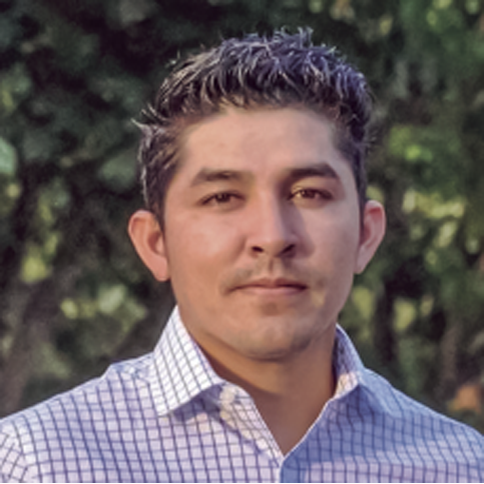
Abrahan Ramírez Ramírez
was born in Guadalupe de Ramírez, Oaxaca, Mexico, and moved to the United States seven years ago. Abrahan lives in Madera, where he practices traditional art, promoting education, cultural management, and preservation locally. He has participated in initiatives that encourage creativity and pride in culture and tradition, including the traditional Day of the Dead and the Guelaguetza in Madera. Since childhood in the Mixteca region of Oaxaca, Abrahan was inspired by his parents’ creativity, who taught him to use and recycle various materials to create art. Currently, he offers free community workshops on making lanterns, a traditional craft used in Oaxacan celebrations.
PRESENTERS
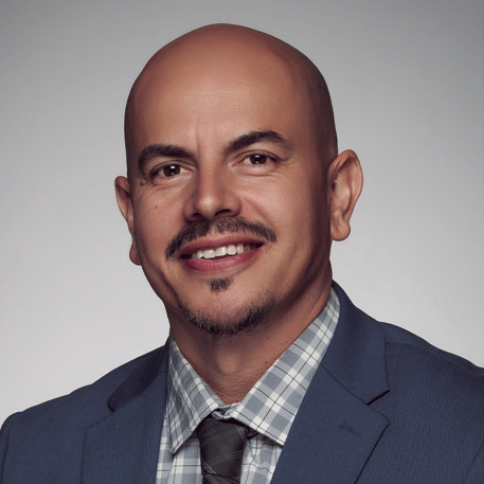
Dr. Angel Reyna
Officially became president of Madera and Oakhurst College Centers (now Madera Community College) on May 20, 2019. This marked a significant moment, as he is the first on-campus president in the school’s history. Under Dr. Reyna’s leadership, Madera Community College achieved the milestone of becoming an independent college on July 20, 2020. Additional institution achievements include being recognized as a 2022 Equity Champion of Higher Education and winning “The Million Dollar Community College Challenge” sponsored by Lumina Foundation. Dr. Reyna joined the Central Valley team from Renton (WA) Technical College, where he has been Vice President of Instruction since December 2015. Before that, he was Dean of Workforce Education at Walla Walla Community College and served as Director for Workforce Education and ESL adjunct instructor at Yakima Valley Community College. President Reyna completed his doctorate in organizational leadership at Northeastern University. He previously earned his M.A. in Educational Administration and B.A. in History and Education from Washington State University.
PRESENTERS
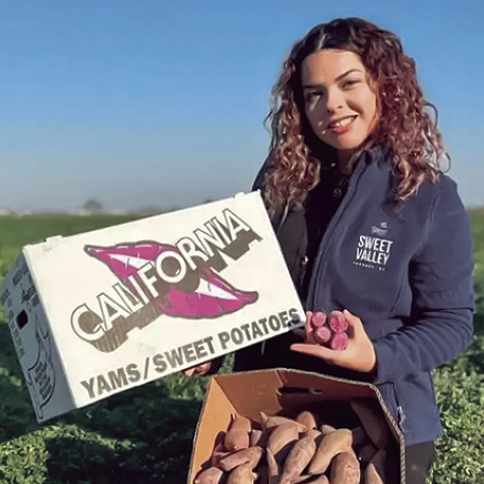
Angelica Estrada
Is the proud founder of Sweet Valley Produce, a female-owned business rooted in the rich agricultural heritage of California’s Central Valley. As a first-generation Mexican-American, Angelica draws strength from her cultural roots and the generations of farmers in her family who worked the land with passion and purpose.
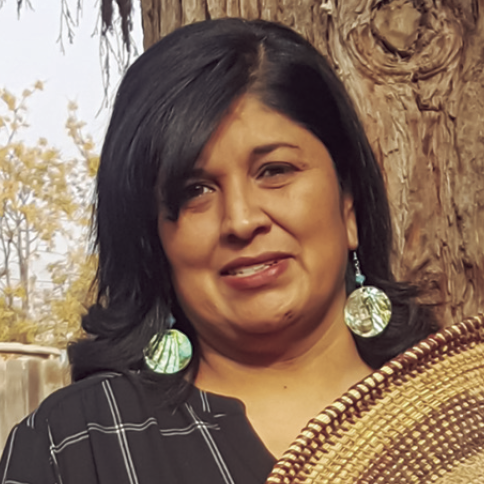
Carmen Moreno (Native American)
Carmen is a descendant of the Tachi and Wukchumni Yokut tribes and lives in Orosi, CA, with her family. She spent over 25 years in the medical field and now worksas a Program Assistant for Advocates for Indigenous California Language Survival (AICLS). Carmen has been teaching traditional culture and language since she was young and continues the legacy of her late mother, Lawona “Oswick” Icho Jasso, who was a Tachi language teacher and basket weaver. She and her family remain dedicated to preserving and sharing their cultural heritage.
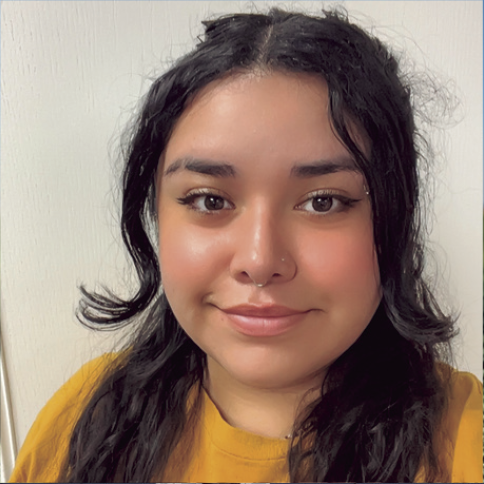
Artemis Fernandez
(She/her) was born and raised in California’s Central Valley, the youngest child of two hardworking immigrants who are now proud U.S. citizens. She spends most of her time working—both professionally and in her personal life—to support others and lend a helping hand wherever it’s needed.
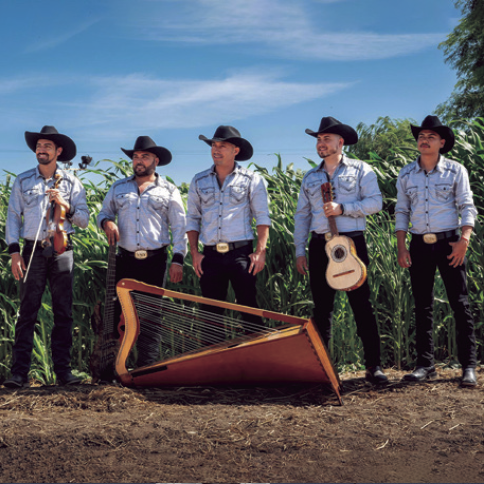
Arpex
Is a musical group founded in 2001 in Atwater, California, dedicated to preserving and showcasing the music of the Arpa Grande in both its traditional and modern styles (Arpa Calenteño). Their first album, Esto sí es Arpa (2003), marked the start of a journey that led them to collaborate with Daniel Sheehy, director of Smithsonian Folkways, in 2004 to record ‘Music from the Hotlands of Michoacán.’ Since then, they have released five albums, establishing themselves as leading voices in this genre. In addition to their main roles, the members also perform various instruments in the modern style of the Arpa Calenteño. This tradition has been led by founder, director, and producer Miguel Prado since its beginning. After 24 years of evolution, the group currently includes: Violin 1: Víctor Mendoza, Violin 2: Javier Valdovinos, Harp: Miguel Prado, founder, director, and producer, Vihuela: José Arturo Mendoza, Fifth Guitar: Alfredo Díaz Valencia.
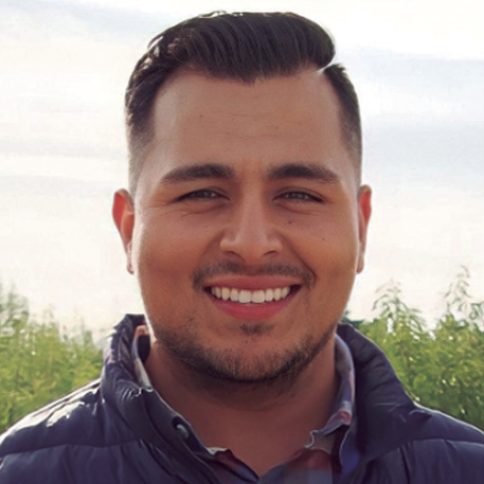
Benny Corona
Was born and raised in Tulare County, California. As the son of low-income immigrants, Benny also grew up working as a student migrant farmworker throughout Tulare County and other parts of the Central Valley. By the age of 13, Benny and his younger brother managed to double their family’s income by working in agriculture, picking citrus and grapes. As a youth, Benny dreamed of obtaining higher education and becoming a positive role model for his five younger siblings. Through hard work and perseverance, Benny became the first in his family to attend and graduate from high school. In 2015, Benny achieved his dream of obtaining a higher education by graduating with the highest honors from UC Berkeley. Today, Benny continues to work in public service, advocating for disadvantaged communities and rural communities by advocating for ratepayers of essential utilities like telecommunications and energy.
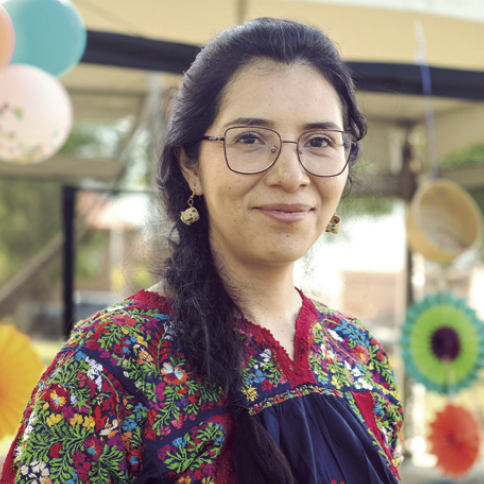
Daisy Mejia
Was born in Santa Maria Tindu, Oaxaca, and grew up in Madera, California. Inspired by the women in her community, she learned that cooking isn’t just about food but about preserving culture, honoring ancestors, and bringing people together. In the U.S., food became a bridge connecting Oaxaca and California. Today, she honors those traditions by reimagining the kitchen as a living archive, passing this knowledge to her son as a shared, empowering legacy.

Dalia Kheerder (Iraq)
Dalya Hussein works with refugees and immigrants; helping newcomers is one of her passions. She also enjoys practicing her culture and exploring others. Cooking is one of the ways that shows the soul of cultures, which is why it is her favorite way to express her culture and share it with others. In her home country, Iraq, people seize every opportunity to gather and share food. Food brings us all together, and now, as a wife and mother of two living far from her family and old friends, she says that cooking restores all her memories, connecting her with her family, old friends, and homeland. She makes sure to cook with love for everyone and passes the message that we are all human and in this together, no matter what.
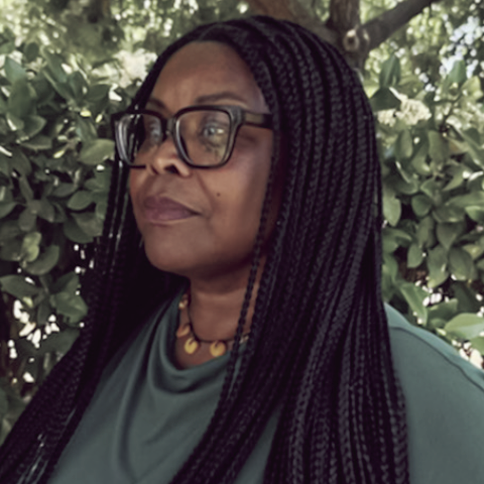
Devoya Mayo
Devoya is a steady presence radiating warmth, wisdom, and a quiet brilliance that draws people in. As host of Pan Valley Institute’s Salt of The Earth podcast, she weaves thoughtful commentary, memory making, and civic care into every episode, guided by the West African Adinkra concept and symbol Eban (safety, security, shelter). Her voice is a soft landing for stories that matter.
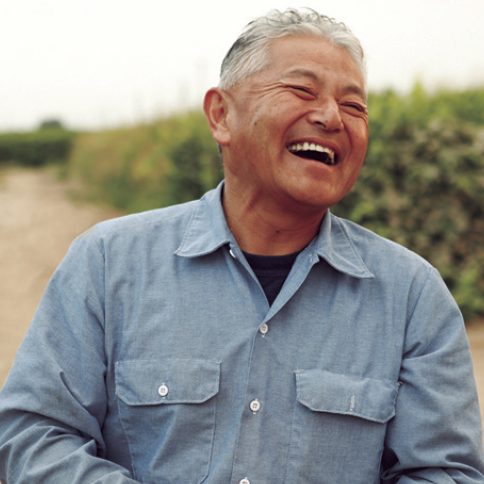
David Mas Masumoto
Mas Masumoto is an organic peach, nectarine, apricot, and grape farmer. In addition to growing fruits on their family farm, he fosters a connection with food, nature and farming through their “Blossom Bathing” event in March and their “Adopt a Tree” gathering every summer for the last 20 years. He is also the author of fifteen books including: Epitaph for a Peach, Secret Harvests, and Shadow Music. A documentary, Changing Season on the Masumoto Family Farm, was nationally broadcast by PBS. His children’s book, Every Peach Is A Story is written with his daughter, Nikiko Masumoto, and explores family history and the flavors of those who’ve come before. His writing awards include the Julia Child Cookbook Award and the Independent Publisher Book Award. Secret Harvests was a 2024 finalist for the National Book Critics Award.
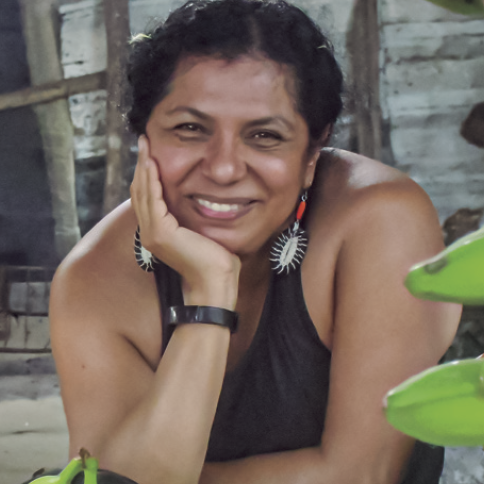
Doris Careaga Coleman
(Afro-Mexican)
Doris Careaga Coleman (Tamiahua, Veracruz) is a faculty member in the Department of Chicana and Chicano Studies at the University of New Mexico. She is founder of the Afro-Tamiahua Collective and co-director of Conexiones Africanas A.C., and her work centers on Afro-Mexican studies, memory, and Afro-descendant culinary traditions. She is the author of La culinaria afrodescendiente en Tamiahua: un discurso para iluminar a los afrodescendientes mexicanos (2018) and director of documentaries such as Las mujeres afrodescendientes: Memoria del pasado africano and Las artes de pesca afrotamiahuenses (2023).
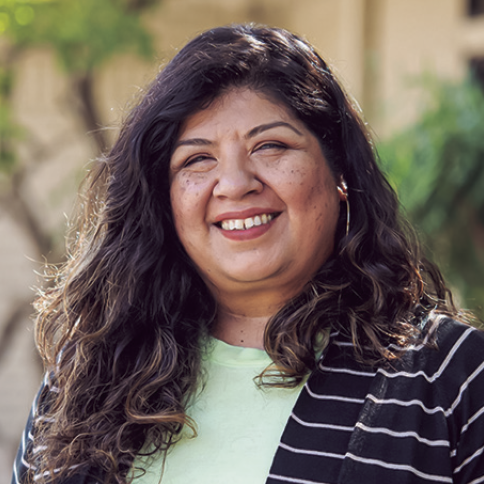
Estela Galvan-Niño
has deep roots in California’s Central Valley as a member of immigrant working families who migrated through Texas during the 1940s Dust Bowl and from Jalisco, Mexico, in the early 1980s. She was raised in the rural community of Kerman, CA, amid various agricultural fields. She has witnessed how the landscape has changed over the years because of climate change and water privatization. Estela began her social justice career with the AFSC Pan Valley Institute in 2000 in different capacities as a cultural organizer, program associate, and consultant. As a popular education practitioner, she strongly believes in the knowledge and abilities that all people carry to create change as they see fit. Throughout her years of service to the community, she has learned that having faith in organizing and accompanying people on their journey to create a better world takes courage, creativity, and patience. Estela received her Bachelor of Arts in Liberal Studies from California State University, Fresno.
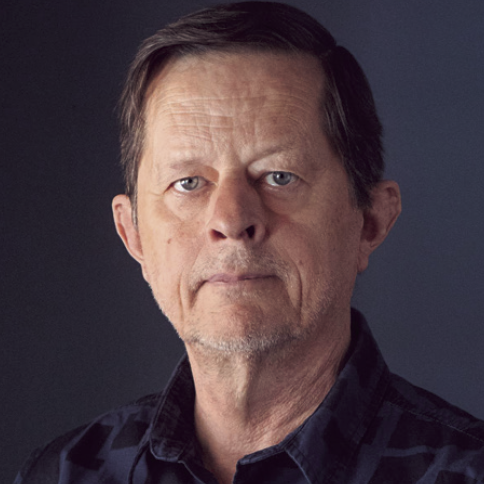
Eduardo Stanley
After graduating from Film School at the University of La Plata, Argentina, Eduardo Stanley received a scholarship for postgraduate studies at the University of Bucharest, Romania. He later moved to Mexico, where he taught Semiotics and Language Development at the University of Sinaloa. Eduardo then relocated to California’s Central Valley, where he built a career as a journalist. He contributed to several publications in various roles, such as editor, reporter, and photographer. He wrote extensively about immigrants and the different ethnic groups living in the Central Valley, and their contributions to the economy and the culture. Stanley currently is the Editor of the Community Alliance newspaper in Fresno and hosts a Spanish radio show at KFCF.
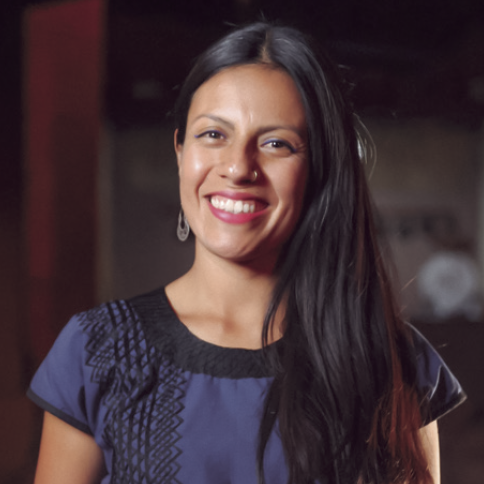
Fabiola Santiago
(She/they) is from Santiago Matatlán, Oaxaca, Mexico, and belongs to the Indigenous Zapotecs of the Central Valley. Her experiences as a formerly undocumented person and her connection to Oaxaca’s rich culture–particularly as a descendant of mezcal producers,anchors her commitment to community, equity, and possibility. She’s the founder and Executive Director of the non-profit, Mi Oaxaca. Mi Oaxaca’s purpose is to combat Indigenous erasure, both intentional and unintentional. They approach this through narrative change, cultural education programming, and collaboration with compatible organizations across borders. Fabiola imagines a world where Indigenous people are recognized for their cultural and culinary contributions and have sovereignty over it.
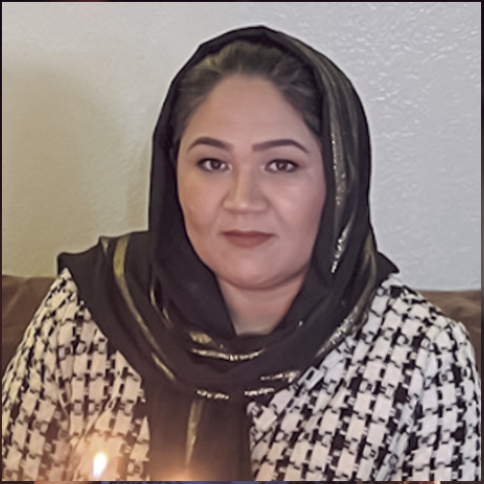
Fariba Mir Abbas (Afghanistan)
Fariba Mirabbas is an aspiring chef with a deep passion for cooking and sharing meaningful meals. Her love for food started at a young age, shaped by a life of responsibility and resilience. After attending only the first grade, Fariba had to leave school to care for her younger siblings, an experience that taught her strength, perseverance, and the importance of nurturing others. Specializing in traditional Afghan cuisine, Fariba crafts beloved dishes like mantu, qabuli, and bolani—each made with care and infused with love. She believes that food made with heart tastes better and brings people together. Fariba is committed to advancing her skills in the culinary arts, constantly learning new techniques and experimenting with flavors. Her ultimate goal is to open her own restaurant, where she can inspire others and share the joy of cooking through her dishes.
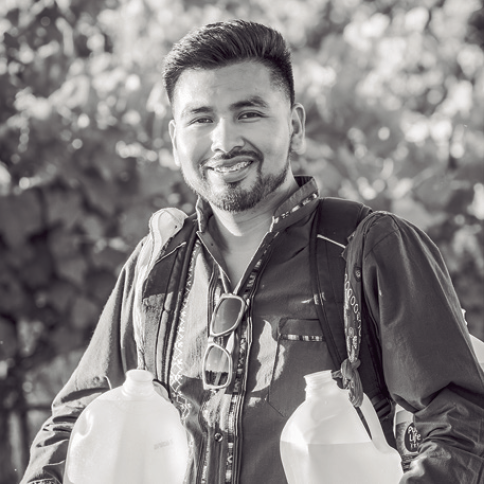
Jose Eduardo Chavez Garcia
Jose Eduardo is a Mixtec Indigenous immigrant from Oaxaca, Mexico, raised in Madera, California. His roots inspire his passion for creating spaces of belonging and equity. With years of experience in community outreach, program management, and intercultural communication, Jose works to uplift voices that are often overlooked and to strengthen community power through collaboration.
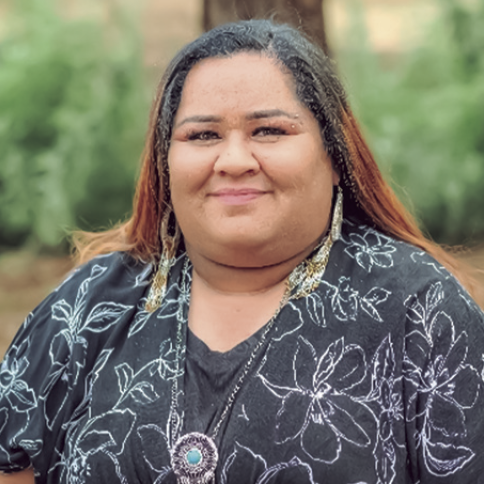
Jessica Malone
is Wukchumni and the Food Sovereignty Coordinator at Wukchumni Farms. She is the granddaughter of Valerie Holladay and the great-granddaughter of Marie Wilcox. Jessica has been involved in basket weaving and gathering circles, Wukchumni Language classes, and cultural workshops since she was a youth. She enjoys working with plants and animals and is an avid home gardener. Jessica has received certifications in Traditional Ecological Knowledge, TEK Native Plant Identification, Mapping, Wildland Safety, and S-212 Wildland Fire Chainsaws.

Joshua Slack
is an actor, writer, and director and is the Cultural Organizer for Pan Valley Institute. He serves as a vessel to bring life to his community by telling stories and depicting images of those from marginalized backgrounds at the forefront. He has studied at Fresno State, majoring in both Theater Arts – Acting emphasis, and Africana Studies, as well as studied at Stella Adler: Art of Acting Studio in Los Angeles and is also the minister of music at his church Philadelphia Outreach Ministries. He was also a Fellow during the 2021-2022 cohort of the Pan Valley Institute ArteVism
Fellowship, where he wrote and performed in his own solo performance, “CODESWITCH”. He also was Fellow during the 2023-2024 cohort where he co-wrote, directed, and starred in a play, “My Relationship With America.” He uses his photography as a vessel to bring life to his community by depicting images of those from marginalized backgrounds at the forefront. When he is not performing, Joshua is often serving his community as an activist and speaker, community organizer and cultural organizer. His goal is to offer his gifts and talents as a platform to tell the stories that mainstream media won’t tell, and to give a voice to the voiceless in his community.
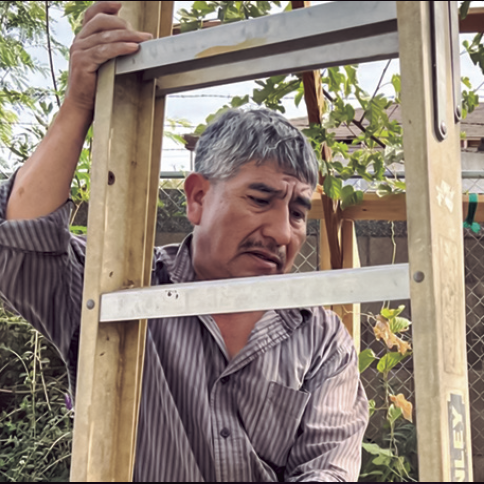
Leoncio Hernandez
originally from Santa María Peñoles Etla, Oaxaca, moved to the United States in the early 1990s, planning to work for only five years. Like many indigenous migrants, his plans changed as stricter immigration policies and life’s realities extended his stay. What started as a temporary move has now turned into nearly three decades of dedicated work in California’s agricultural fields.
Despite facing discrimination rooted in his indigenous identity, Leoncio persevered in learning Spanish, adapting to new environments, and mastering the technical skills that support California’s agriculture. Over the course of his career, he rose to the role of foreman, where he has led with experience, resilience, and deep knowledge of the rapidly changing land due to climate change. With more than 20 years in leadership, his expertise is especially strong in tree shaping and pruning. Leoncio has planted and shaped thousands of fruit and shade trees across Central California.
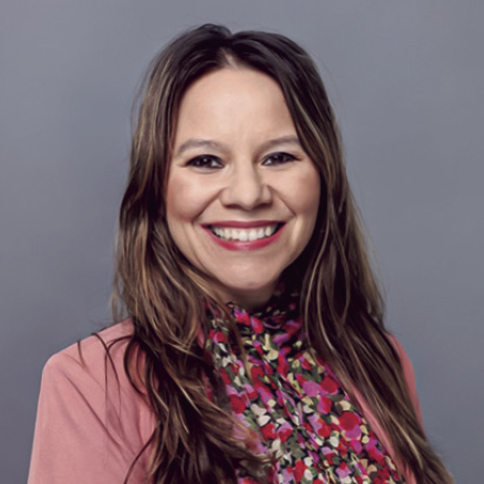
Leticia Corona Gómez
is the Vice President of Community Lending and Investment at Wells Fargo Bank, where she oversees a national portfolio that provides debt capital to community development financial institutions (CDFIs), minority depository institutions (MDIs), affordable housing developers, and community facilities. She previously served as a Portfolio Manager at a Registered Investment Advisory firm, where she managed a multi-million-dollar fund investing in real estate, emerging funds, and CDFIs.
As a first-generation professional, Leticia draws pride and strength from her Mexican heritage, channeling its values into innovative and sustainable approaches to real estate and community development. She brings her combined experience as a founder and investor to her role on the Advisory Committee of the Fibers Fund, where she helps guide investments in regenerative fiber startups and sustainable designers.
She earned her B.A. from UC Berkeley, an M.A. in International Relations, focusing on Economic Development and Politics in Latin America, from the University of San Diego, and is currently pursuing an Executive MBA at UC Berkeley’s Haas School of Business.
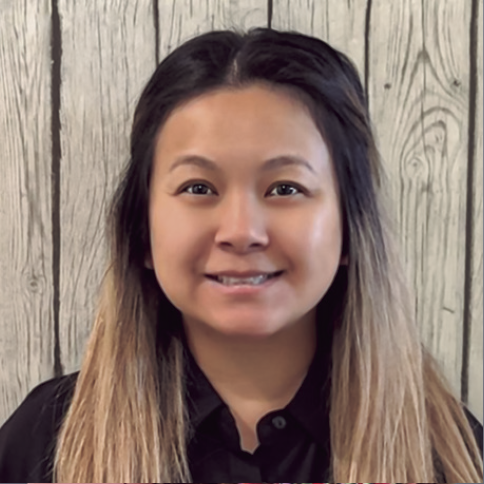
Lily Saelee (Lao and Hmong)
Ntxoo Lily Saelee is an Asian American born and raised in Merced, California. She takes pride in her Hmong heritage. Growing up in a Hmong household, food has always been a vital part of her life. It connects her with family, celebrates traditions, and keeps her culture alive. Lily enjoys sharing Hmong food with others because it tells her roots and community story. Being part of a cultural kitchen allows Lily to introduce others to Hmong flavors and traditions while learning from different cultures. Cooking isn’t just about making meals; it’s about honoring her roots and building connections with others through food.
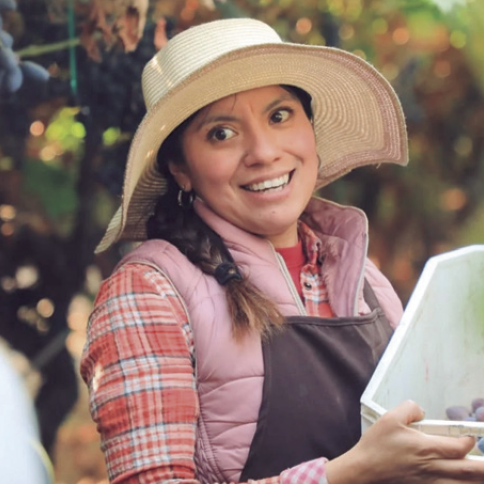
Lisset Garcia
is the founder, operator, and farmer at Sweet Girl Farms. She has
been an entrepreneur since childhood, helping her parents sell produce from rundown pickup trucks on Los Angeles sidewalks, as well as at flea markets and swap meets. Over the years, she and her family acquired their beloved farm in Reedley, where they have settled permanently. Lisset continues to sell farm-fresh produce that she and her parents grow at her farm stand called Sweet Girl Farms. She holds a Master’s of Public Health from the University of Southern California. She attended the University of California, Merced, for her Bachelor of Science in Molecular and Cell Biology with a minor in psychology. Additionally, she completed Reedley College’s healthcare interpreter certificate program and continues to pursue online courses in human biology as a hobby.
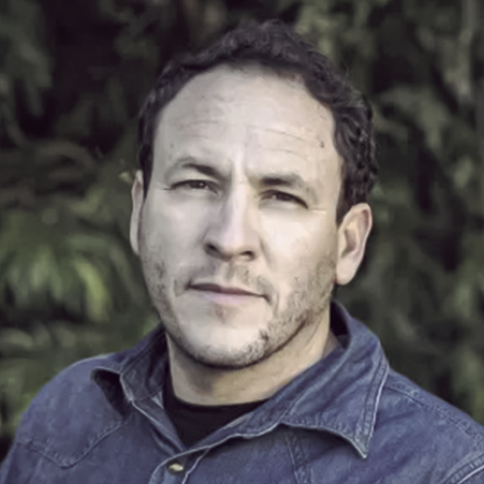
Manuel Ortiz
Based in Redwood City, California, Ortiz is a Mexican sociologist,
journalist, photographer, educator, and media strategist focused on human rights and international migrations. He has over 20 years of experience working for media outlets, universities, and organizations across several countries, including Mexico, the United States, Colombia, Bolivia, El Salvador, Honduras, Guatemala, Brazil, Japan, Spain, France, Poland, Ukraine, and Lebanon. Ortiz is the co-founder of Península 360 Press, a media outlet in Northern California that received the Journalism Innovation Award from Ethnic Media Services and Black Media in 2024. He also co-founded the nonprofit organization Social Focus, which aims to empower migrant communities through communication. For his journalism work, Ortiz has won the International Visual Sociology Association Prosser Award 2021 and several other awards.
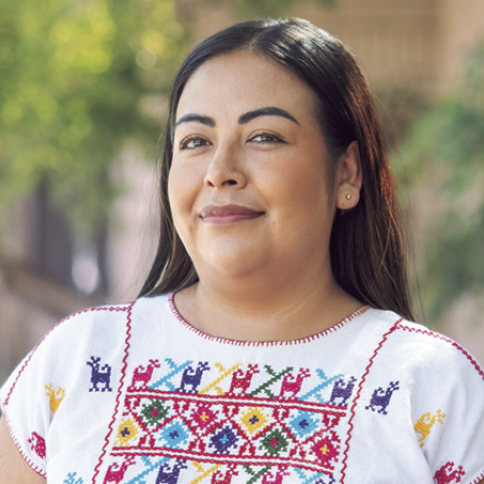
Minerva Mendoza
is an indigenous Mixteca immigrant from Oaxaca, Mexico. When she was ten, her family moved to the U.S. to work in California’s Central Valley fields. Seeking better opportunities, they settled in Madera. In 2021, Minerva co-managed a grassroots city council campaign. The campaign was entirely run by volunteers and small donations from community members who had long awaited accurate representation. The energy, enthusiasm, and grassroots organizing efforts led to the election of the first indigenous Mixteca woman to Madera’s City Council, marking a historic milestone for the local Oaxacan community. In 2023, Minerva became the first president of the Madera Comité Guelaguetza. She led a group of grassroots community members to bring the Guelaguetza to Madera for the first time. The Guelaguetza is a well-known indigenous and ancestral celebration in the Mexican state of Oaxaca, attracting thousands of visitors worldwide. Minerva is a program coordinator for the American Friends Service Committee Pan Valley Institute.
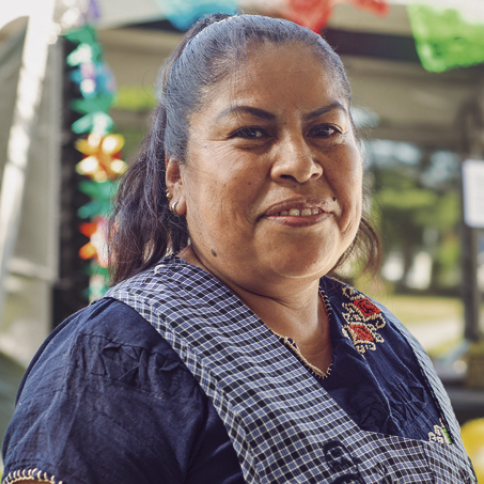
Mireya Santiago (Mixteca)
Originally from Santiago Juxtlahuaca, Oaxaca, Mireya cooks pork pozole, chicken pozole, and chicken tamales wrapped in banana leaves. These dishes are some of the most traditional in Juxtlahuaca and are always featured during a plaza day. They are made from natural corn and yellow chile, typical of the coast.
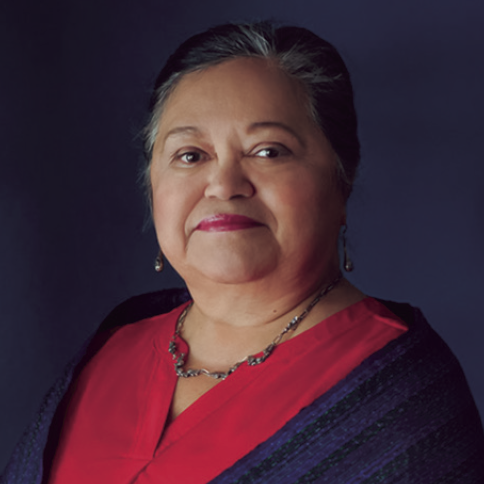
Myrna Martinez Nateras
Myrna Martinez Nateras is the founding program director of the American Friends Service Committee Pan Valley Institute (PVI), which was established in 1998. As the director of PVI, Myrna has led several initiatives that equip immigrants and refugees with tools to build agency, enhance their collective leadership, and promote interethnic solidarity. In addition to uniting community activists, Myrna has also brought together immigrant cultural leaders and fostered a strong synergy of immigrant civic, political, and cultural production. As an immigrant herself, born to humble
beginnings in Tuxpan, Michoacán, Mexico, Myrna understands the struggles of those seeking a better life in the United States. She has participated in research projects to explore opportunities and challenges in Latino civic engagement. She studied philosophy and sociology at the University of Bucharest, Romania.
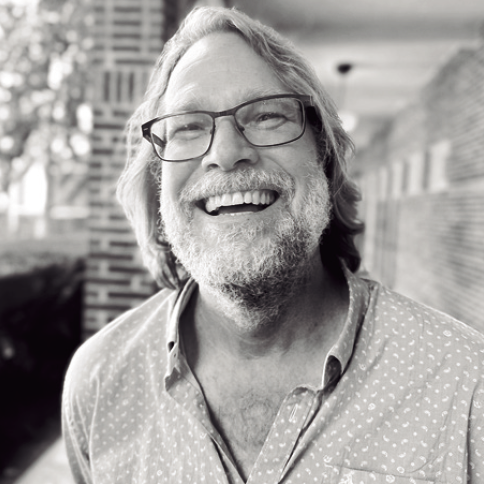
Paul Gilmore
Has taught history at Fresno City College for 23 years. He is one of the founders of the FCC Social Justice Center and was its first coordinator. Among other topics, he teaches the History of American Civil Rights Movement, the History of California and the History of Business, Labor and Technology. He has always been interested in how social movements, especially workers’ movements have shaped our history. He hopes recovering the memory of forgotten struggles (and better remembering the famous ones) can help people better understand their present situation and how to change it.
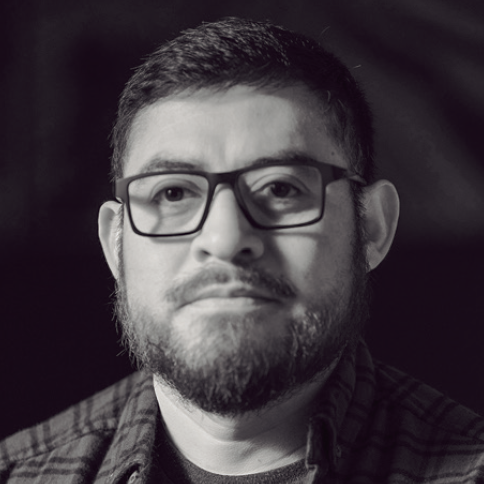
Narsiso Martinez
(b. 1977, Oaxaca, Mexico) came to the United States when he was 20 years old. Narciso’s drawings and mixed media installations include multi-figure compositions set amidst agricultural landscapes. Drawn from his own experience as a farmworker, Martinez’s work focuses on the people performing the labor necessary to fill produce sections and restaurant kitchens across the country. Martinez’s portraits of farmworkers are painted, drawn, and expressed in sculpture on discarded produce boxes collected from grocery stores. In a style influenced by 1930s-era Social Realism and heightened through the use of found materials, Martinez makes visible the arduous labor and difficult conditions of the “American farmworker,” a term burdened by industry’s heavy reliance on undocumented workers. He received a Master of Fine Arts in drawing and painting from California State University, Long Beach, and was awarded the prestigious Dedalus Foundation MFA Fellowship in Painting and Sculpture. His work has been exhibited both locally and internationally. Martinez lives and works in Long Beach, CA.
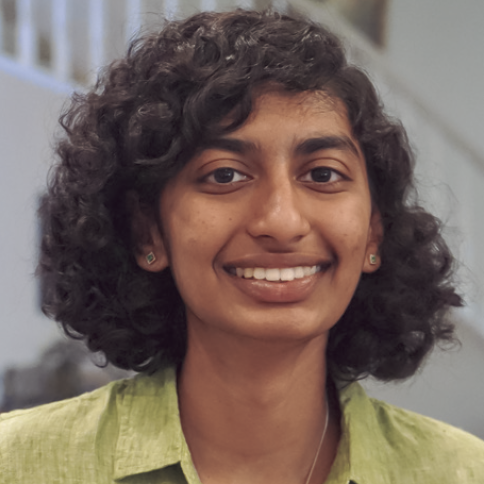
Nina Narahari
is a recent-ish political science and history double major from UC Berkeley. After gaining experience working as a beat reporter for the collegiate newspaper and completing academic research for professors, she became interested in delving more into the field of research. As a fellow for the Berkeley Interdisciplinary Migration Initiative, she collaborated with others to research how immigrants were impacted by COVID-19, and came up with a policy brief outlining potential community-based solutions. Currently, she works as a researcher for a Democratic consulting company doing campaign work while moonlighting as an armchair historian in her free time.
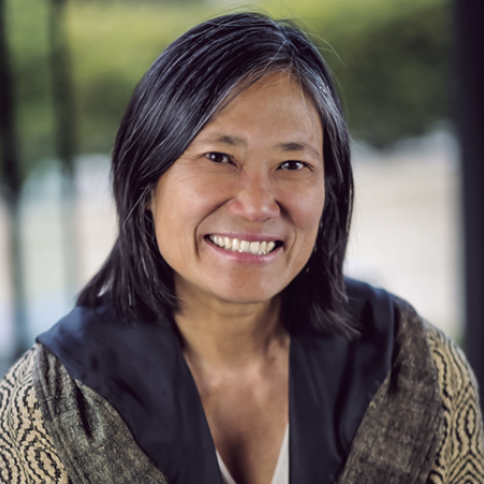
Patti Chang
Believing in the inherent dignity and human rights of all people and ecosystems, Patti has worked on behalf of disenfranchised communities her entire career. Patti is the founder and CEO of Feed The Hunger Fund, which in California and Hawaii, provides primarily BIPOC, low-income, women, and immigrant entrepreneurs locked outside of the financial mainstream, with the tools and access to capital that allow them to participate fully in their community’s food economy. Feed The Hunger Fund has provided loan and grant capital to 350+ farmers, ranchers, food distributors, operators of food trucks and markets, and restaurateurs. FTHF has provided thousands of hours of financial coaching and technical assistance to these businesses.
Patti’s strong roots lie both in Hawaii where she was born and raised, and in California which has been her home for the last 45 years.
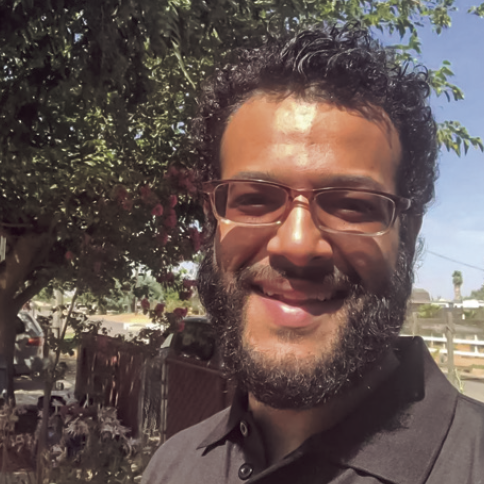
Rasheed Hislope
(He/him) has been with the Community Alliance with Family Farmers (CAFF) since August 2020, where he now serves as a Farm to Market Senior Manager. He works directly with family-scale farmers and local food hubs to help them succeed in California, both in the marketplace and throughout their operations. Rasheed leads projects that offer both direct and institutional marketing support, food safety compliance, technology access, and general technical assistance to meet regulations, all aimed at increasing local and regional product sales. He also supports CAFF’s Central Valley-based staff and contractors, leading projects and programs that expand local farm and food hub market access and foster long-term relationships with buyers.
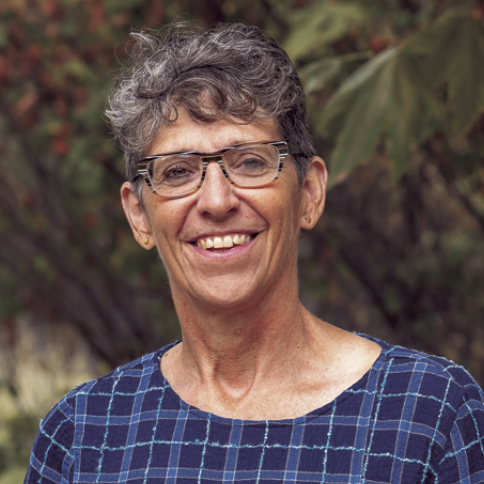
Renata
is the Executive Director at the California Climate and Agriculture Network (CalCAN) which she co-founded in 2009. She has 25 years of experience in sustainable agriculture policy and food systems projects and 30 years’ experience in non-profit administration. Prior to CalCAN, she was Energy and Agriculture Program Director at the Climate Protection Campaign (now The Climate Center), and she served as the Director of Californians for GE-Free Agriculture, a coalition that carried out education and policy advocacy on genetic engineering in agriculture. She lives in Sonoma County and is dedicated to the long-game work of engaging with communities of changemakers to influence policies that lead to a healthy, just and resilient food and farming system.
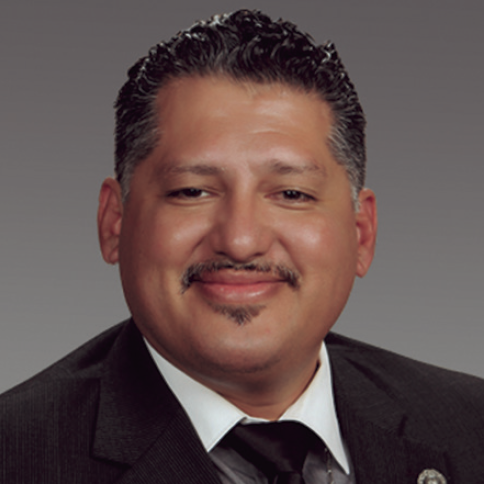
Rey León
Is the mayor of Huron, California and the founder and executive director of The LEAP Institute (Latino Equity Advocacy & Policy), a valley-based Latino non-profit organization. He was born in Fresno and raised in the Huron area. Currently based in Fresno County, he focuses on economic, environmental, transportation and climate justice, clean energy, green jobs, and community development.
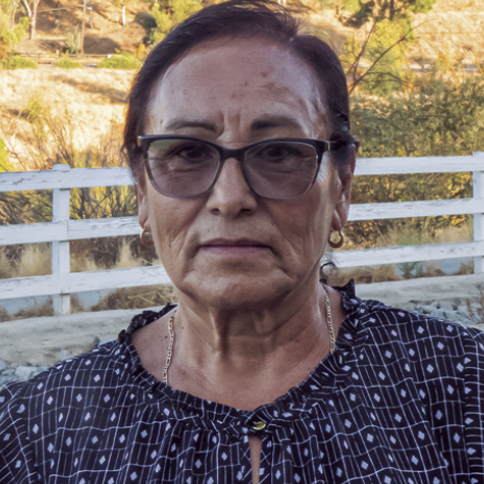
Rita Cruz Robles (Michoacán)
Rita Cruz Robles is from a small town in Chucándiro, Michoacán. She likes to cook because it always reminds her of the food she used to eat in her hometown. She loves to
cook, mainly to keep our traditions alive.
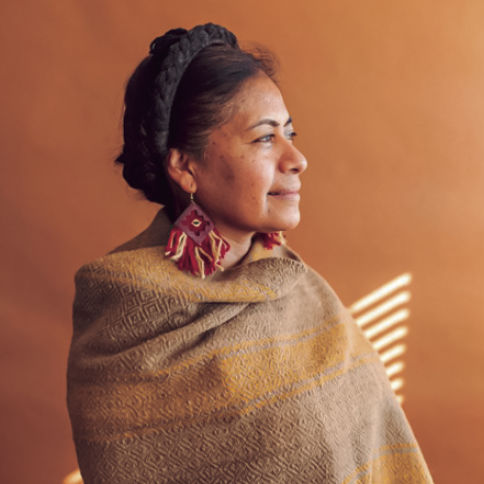
Rufina Gutierrez Martinez
Was born in Teotitlán del Valle, Oaxaca. She comes from a family of weavers. Rufina only studied until middle school to help her parents with their weaving business and make ends meet. In her childhood, she enjoyed art, music, and weaving. At 16, she moved to Tijuana, Baja California, in search of better opportunities. At 20, she migrated to the United States, where she met her husband and had her first daughter. Today, she continues to work with her family’s craftsmanship along with her daughter, Cinthia Vicente, as co-founders of Zapoteco Weavers. Rufina and Cinthia’s focus is to continue growing and to help people value their craftsmanship. The Zapotec Weaver is a collective of close friends and family members who deserve all the recognition for their hard work.
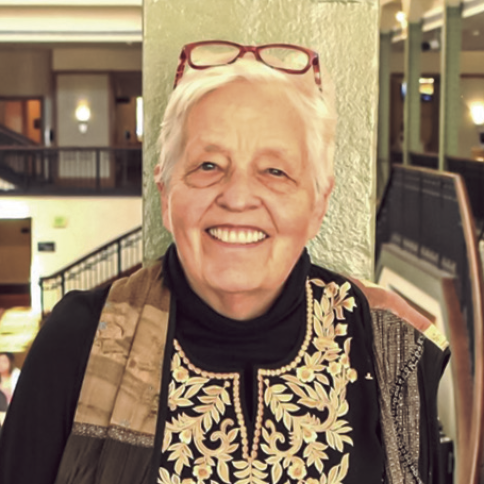
Sandy Close
ACoM Executive Director, started her career covering China and Vietnam as an editor of the Far Eastern Economic Review in the mid-1960s. She became editor of Pacific News Service in 1974 and was a pioneer in developing youth media. In 1996, she founded New America Media, the first and largest collaboration of ethnic news organizations. Her work has received several awards, including a MacArthur Foundation “Genius Award” and the 2011 Polk Award for Career Achievement. In 1996, a film she co-produced, Breathing Lessons, won an Academy Award for best short documentary. She founded American Community Media in 2017 to continue her work amplifying and elevating the voices of community and ethnic media.

Saul González
Saúl González Laureano is a visual artist, educator, and cultural promoter with over 15 years of experience in social and artistic projects in Mexico and the United States. In Mexico, he directed the civil association Hiphoptarsis for ten years, developing programs for social intervention in more than 130 schools, focusing on addiction prevention, culture, and youth empowerment. He also coordinated workshops for the National Council for Culture. His artistic approach aims to foster community cohesion and strengthen collective identity through a vibrant, colorful, and symbolically rich style that combines tradition with contemporary social engagement.
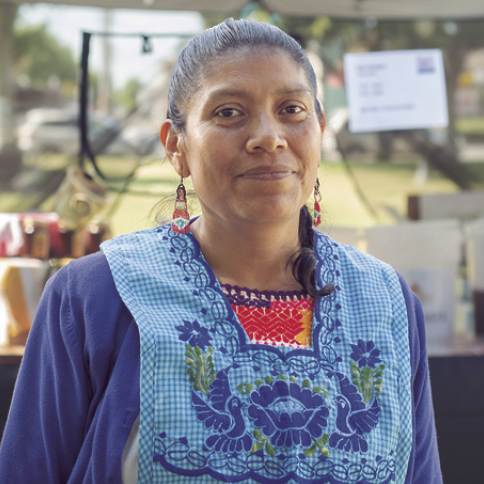
Silvia Rojas (Mixteca)
Silvia is from San Juan Mixtepec, Juxtlahuaca Oaxaca. She speaks Mixteco alto and has lived in Madera, California, for 25 years. Silvia likes the Indigenous crafts and food of her land. She learned to cook just by watching the cooks of her town and with her grandmother and mother.
.
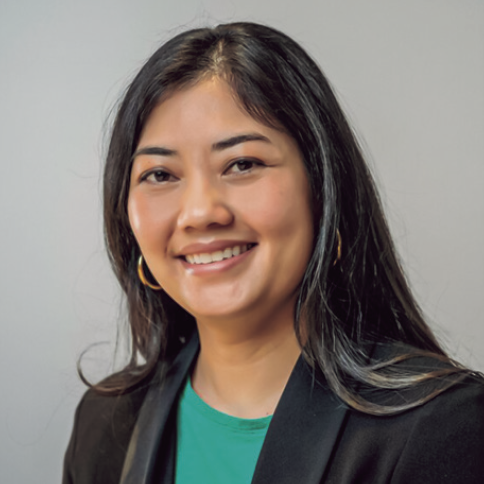
Soreath Hok
Is an award- winning journalist, radio host and donut connoisseur. She’s in the third year of Fresno State’s MFA program, with an emphasis in creative nonfiction. Her writing focuses on her experiencesg rowing up in her family’s donut shop, a cornerstone of the Cambodian refugee experience in California.
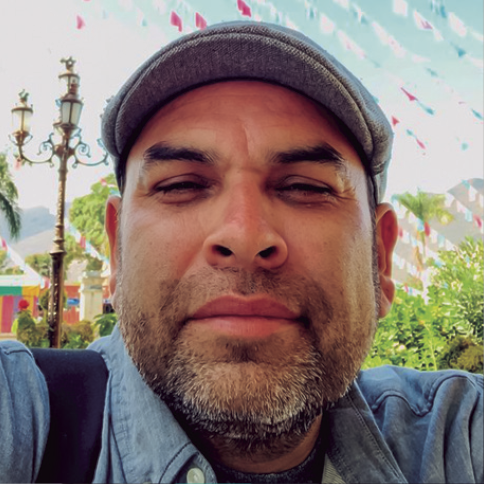
Tony Carranza
Is a curator, designer, and artist with over 25 years of experience connecting design and community. He has curated exhibitions for Mission Cultural Center, Arte Américas, Dulce UpFront, and Fres.Co, while leading creative work at Landor Associates and TUMIS. As co-founder of Dulce UpFront, he continues to reimagine how art, design, and community intersect to highlight cultural storytelling.
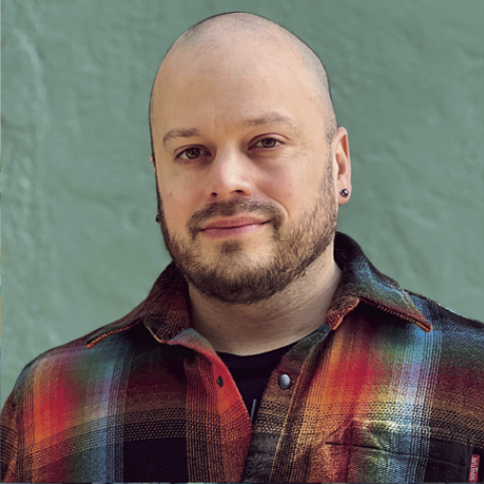
Tudor Stanley
As a San Francisco Bay Area- based visual creative, Tudor draws inspiration from his Mexican heritage and diverse upbringing in Fresno, California. His work with the Pan Valley Institute has given him a deep understanding of and appreciation for the rich diversity of the Central Valley and the hard-working communities that often go unnoticed. Tudor contributed to documenting Pan Valley Institute’s work for almost twenty years and built the organization’s photo archive.
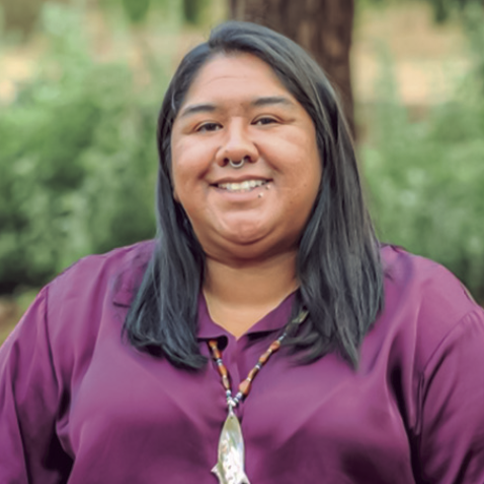
Yaynicut Franco
Serves as the Vice-Chairperson of the Wukchumni Tribal Council. She comes from a proud lineage of strong Wukchumni, Yowlumni, and Tachi women. She leads her community as the Director of Culture and Land Stewardship for the tribe’s non-profit organization and as the Executive Director for the Wukchumni Community Land Trust. Yaynicut is a cultural practitioner and ceremonial leader who dedicates her time to preserving traditional lifeways and cultural ecological practices. She is the Board Chairperson for Quaker Oaks Farm and a Board Member for FoodLink for Tulare County and the California Community Land Trust Network. She is committed to preserving Wukchumni traditions, language, and history for future generations. Yaynicut collaborates with various organizations throughout California to share Wukchumni history and to fundraise for food sovereignty programs and land back efforts for the Wukchumni Tribe.
Amalia Bernardo
Amalia Bernardo was born in San Martin Itunyoso, Oaxaca, Mexico, and raised by two hard-working immigrant parents in the Central Valley. They have worked in agricultural jobs across California, Oregon, and Washington. Amalia is trilingual in Spanish, English, and Triqui. She is a proud first-generation college graduate with a bachelor’s in Biochemistry. Amalia joined the CBDIO team in 2020 as a community worker and is now the Labor Manager at the organization. In this role, she advocates for Indigenous immigrant farmworkers and their families, while supporting the organization’s efforts to organize workers and recover stolen wages. Outside of work, Amalia enjoys spending time with her family and going for long runs.
May Lee
is a proud Hmong woman from Merced, California, and one of the original participants in the Pan Valley Institute immigrant and refugee women’s initiative. Growing up in a large, close-knit Hmong family, she was raised with the core values of tradition, a strong work ethic, and the importance of community from a very young age. These principles form the foundation of her life, guiding her as a wife and mother to six daughters and one son. May works daily to balance nurturing her family’s cultural heritage and actively participating in her community. Food has always been central to her personal story. May firmly believes that meals go beyond simple nourishment; they serve as a powerful language of love, a tangible expression of heritage, and an essential way to connect.
By sharing the unique and flavorful dishes of Hmong cuisine, May not only preserves her cultural identity for her children, ensuring they stay connected to their roots, but also invites others to experience and learn about the rich fabric of Hmong traditions. She hopes to foster greater understanding and appreciation of her
culture through the universal language of food.
Nicole Celaya
(she/her) is the Operations Manager at the California Climate and Agriculture Network (CalCAN). She has been a permaculturist and activist for many years, advocating for food systems change, environmental justice, and indigenous rights in California’s Central Valley. Before joining CalCAN, Nicole founded CNB Consulting and served as the Executive Director at FoodLink for Tulare County. She was also a founding member of the Central Valley Agroecology Network and worked as an educator and union representative for the Kern Community College District. She envisions a world of abundance beyond capitalism, where communities flourish and care for one another.
Rosa Hernandez (Mixteca)
A Mixtec Indigenous woman born in Oaxaca, Rosa has lived in Madera for 30 years. She has been a dedicated advocate for Indigenous immigrants’ rights, especially those of youth and women. She also played a key role in developing Pan Valley Institute cultural initiatives, such as the Tamejavi Festival. Rosa co-founded the Oaxacan folk dance group See Savi to create a space for Indigenous youth to find a sense of belonging and cultural identity. Rosa was a major participant in Madera’s first Guelaguetza in 2023 and now coordinates the Nu`u Yavi project. Nu’u Yavi aims to honor Indigenous food knowledge while promoting women’s economic mobility. Despite many challenges as an immigrant woman, Rosa remains committed to building a culturally vibrant Madera, a city she and her family now call home.
